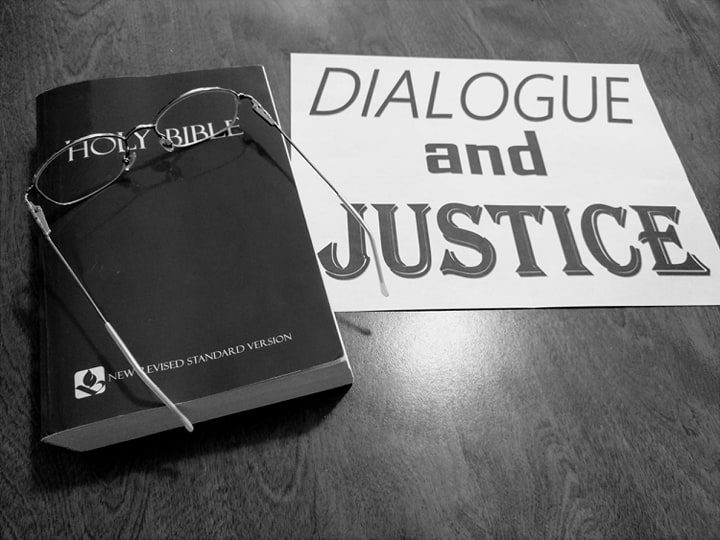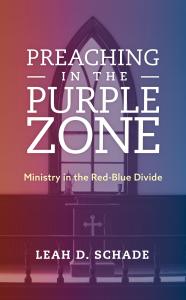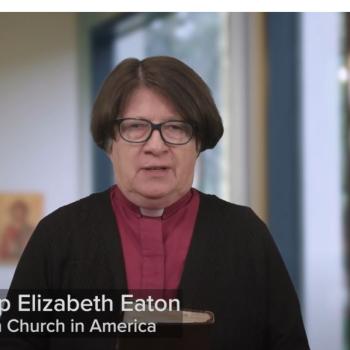A Call to Dialogue and Justice: Preaching the Parable of the Rich Fool with a Dialogical Lens
This is a second example of a sermon trajectory for the parable of the Rich Fool in Luke 12:13-21. In my previous posts, I introduced the “dialogical lens” for reading and interpreting scripture, then showed one example of how to apply it to the parable of the Rich Fool. In the last article, I shared a sermon outline from one of my students showing how the dialogical lens for preaching can be used for the parable. This second example is one I’m working on that focuses on the larger social implications of this parable. Rather than the whole sermon, you’ll see a general trajectory for how the sermon is taking shape as a call to dialogue and justice.

As a reminder, here are the 6 steps for using the dialogical lens [which you can read about here. And for the fullest treatment, check out Chapter Four of my book Preaching in the Purple Zone: Ministry in the Red-Blue Divide (Rowman & Littlefield, 2019)].
Six Steps for Using the Dialogical Lens
Point out the dialogical aspects of the passage.
Determine what’s at stake.
Identify the values.
Explain how God, Jesus, and/or the Holy Spirit is active.
Recognize what the dialogue is teaching us.
Suggest possible next steps.
One of things to realize about these steps is that they do not necessarily have to happen in this order. In this sermon trajectory, you won’t see the steps in sequence. Rather, you’ll see how they are woven into a sermon form that compares and contrasts a real life situation of injustice with the biblical story of Jesus addressing the problem of greed. The sermon has five short segments around the theme of dialogue and justice. The flow is designed to move the listeners toward a willingness to engage in dialogue about a situation of injustice and how the church might respond.
Sermon Trajectory #2
A Call to Dialogue and Justice: Preaching the Parable of the Rich Fool with a Dialogical Lens
Segment One – Blackjewel Coal Company and Eastern Kentucky Miners
The sermon begins by recounting my recent trip to the coal region of eastern Kentucky with a group of seminary students. In this section, I point out how dialogue happens among the students and the residents of Kentucky to dispel the myths and stereotypes about the people of Appalachia. I identify the values of the community. And I show how those values have been violated by the coal companies driven by greed to ravage the mountains and the people themselves. The sermon points out what’s at stake for the community of Cumberland, Kentucky, where a coal company called Blackjewel has declared bankruptcy and refuses to pay the miners.
Segment Two – The Parable of the Rich Fool
The sermon then recounts Jesus’ parable of the Rich Fool. I point out the dialogical aspects of the passage by noting that Jesus’ warning about greed are not just about the man he is addressing. There are three other groups listening in – the crowd, the disciples, and the Pharisees. I explain what’s at stake for each of these groups, and what they value.
But I also note that we who are listening to this text today comprise a fourth group in the dialogue. I ask what the dialogue might be teaching us, how God is active in this situation, and what we might do in response to the parable and the situation with the miners.
Segment Three – Exegeting Blackjewel by way of Brueggemann
Walter Brueggemann’s take on the Parable of the Rich Fool in his book Money and Possessions provides a prophetic lens for framing the Blackjewel situation. This segment explains how Jesus is active by critiquing those who are obsessed with wealth. Such obsession comes at the expense of the workers and God’s Creation. Companies that profit from extraction are modern examples of the Rich Fool. We see that the pursuit of accumulation and wealth designed to secure life ironically results in death.
This segment asks a key question to invite dialogue. “Do we as Christians and as the church have a responsibility to listen and to speak, to respond and take action when it comes to issues of public concern like this?”
Segment Four – Suggesting Next Steps
At the end of the parable, Jesus makes an important distinction. There’s a difference between storing up treasures for ourselves and being “rich towards God” (v. 21). In the sermon, I wonder aloud: what it would look like to be rich towards God when it comes to this situation with Blackjewel and the miners? I make several suggestions (next steps) for how God might be moving Christians and the church to respond (God active in the situation). I also invite listeners to join a conversation with their own thoughts and ideas after the service. In this way, I extend the dialogue.
Segment Five – What the Dialogue is Teaching Us
The sermon concludes not just with what I think is the key point to Jesus’ parable. It reveals something important I learned from my students and the people we visited in eastern Kentucky. (No spoilers at this point! You can read the actual sermon in the next post.) In this way, the sermon not only talks about the dialogical aspect of the text. It models what dialogue looks like within the context of faith. And it invites the congregation to engage in that dialogue themselves, thus becoming part of God’s story.
In the next post, you can read the full text of the sermon. You’ll see how the dialogical lens was used in a sermon calling for dialogue and justice.

Leah D. Schade is the Assistant Professor of Preaching and Worship at Lexington Theological Seminary in Kentucky. She is the author of Preaching in the Purple Zone: Ministry in the Red-Blue Divide (Rowman & Littlefield, 2019) and Creation-Crisis Preaching: Ecology, Theology, and the Pulpit (Chalice Press, 2015).
Twitter: @LeahSchade
Facebook: https://www.facebook.com/LeahDSchade/
Read also:
Owning Stuff or Stuff Owning Us? The Rich Fool in Luke Chapter 12














